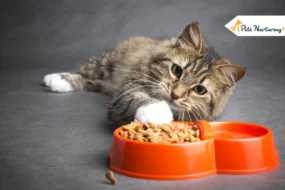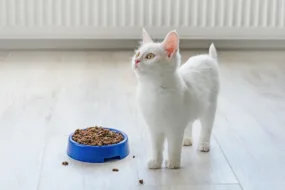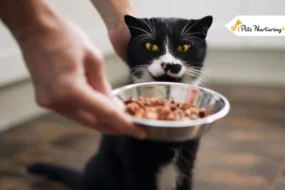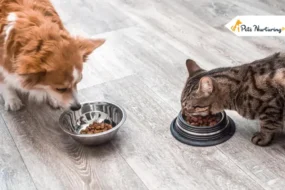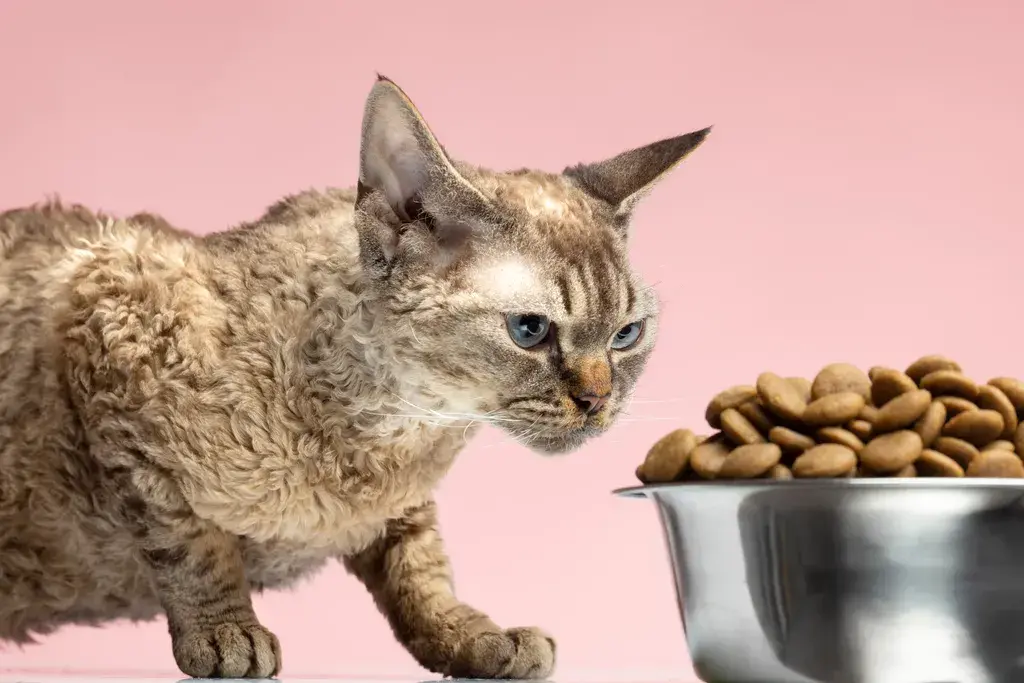
Understanding Kitten Nutrition Needs:
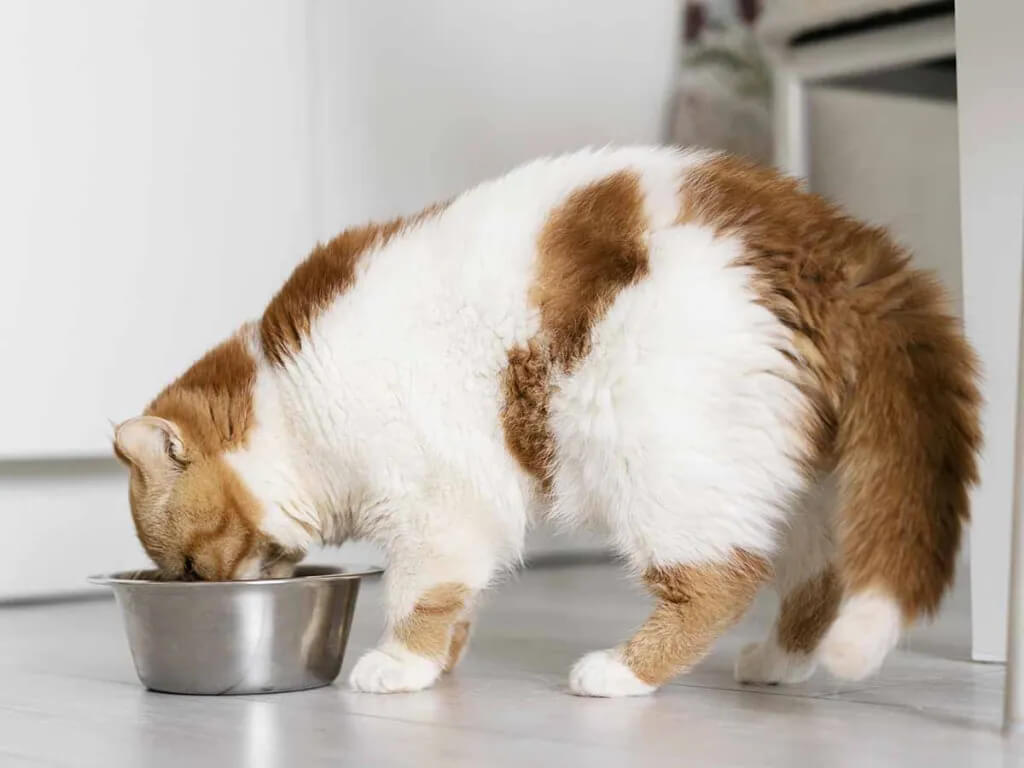
The foundation of a kitten’s health lies in its diet, making understanding their nutritional needs critical. Kittens grow rapidly, requiring a diet that’s rich in proteins, fats, vitamins, and minerals to support this rapid development.
Protein is essential for building muscle and other tissues, while fats provide energy and aid in the absorption of certain vitamins. According to Oksana from Kitty Land, a renowned expert in British Shorthair kittens, understanding and implementing following principles of kitten nutrition can significantly impact their long-term health and happiness.
The Basics of a Healthy Kitten Diet
A healthy diet for kittens should consist primarily of high-quality, animal-based proteins. This includes meats like chicken, turkey, fish, and lamb.
These protein sources are not just about building muscles; they also play a crucial role in developing a healthy brain, eyes, and heart. Carbohydrates should be present but in lower quantities, as kittens are naturally inclined towards a more protein-centric diet.
Essential Nutrients
Alongside proteins and fats, kittens need a range of vitamins and minerals. Calcium and phosphorus are vital for strong bones and teeth, while iron supports healthy blood. Taurine, an amino acid found in meat, is particularly crucial for cats and must be included in their diet.
Common Nutritional Deficiencies
Nutritional deficiencies can occur if a kitten’s diet is unbalanced. For instance, a lack of taurine can lead to heart and eye problems. Calcium and phosphorus imbalances can result in weak bones. Signs of deficiencies may include lethargy, poor growth, a dull coat, and in severe cases, more serious health complications.
Addressing Nutritional Needs
To ensure your kitten is receiving all the necessary nutrients, it’s advisable to feed them a high-quality commercial kitten food, which is specially formulated to meet their unique dietary needs. It’s also important to feed the right amount – overfeeding can lead to obesity, while underfeeding can hinder growth and development.
Identifying Quality Kitten Food
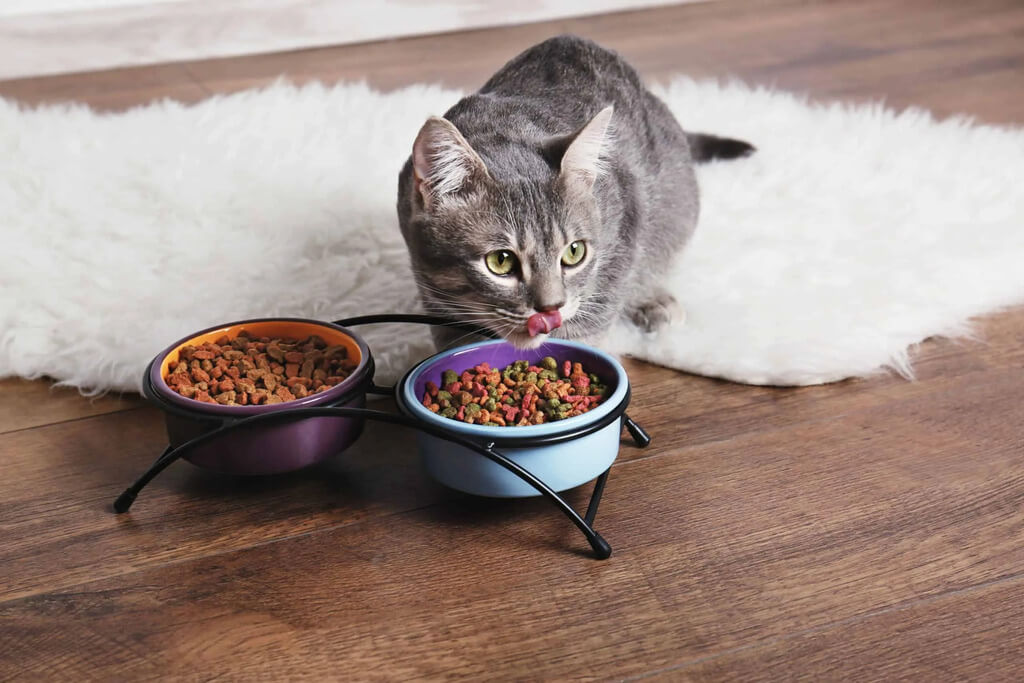
Choosing the right food is crucial for your kitten’s health and development. With numerous options available in the market, it’s important to understand what makes a kitten food high quality and nutritious.
Ingredients to Look for in Kitten Food
High-Quality Protein Sources: The first ingredient should always be a high-quality protein, such as chicken, turkey, fish, or lamb. Kittens require more protein than adult cats, and it should come from real, identifiable meat sources rather than meat by-products.
Healthy Fats: Fats are vital for energy and overall health. Look for foods that include named animal fats, like chicken fat, which is high in omega-6 fatty acids. Omega-3 fatty acids, found in fish oils, are also beneficial for brain and vision development.
Essential Vitamins and Minerals: Vitamins A, E, and B-complex are important, as are minerals like calcium, phosphorus, and iron. These support bone growth, blood health, and overall development.
Taurine: An essential amino acid for cats, taurine supports heart and eye health. It’s naturally found in meat, and high-quality kitten foods will ensure an adequate amount.
How to Read and Understand Kitten Food Labels
Ingredient List: Ingredients are listed in order of weight. The first few ingredients should provide high-quality protein and essential nutrients. Avoid foods where grains or meat by-products dominate the top of the list.
Guaranteed Analysis: This section shows the minimum percentages of protein and fat and the maximum percentages of fiber and moisture. Kittens need a minimum of 30% protein and 9% fat in their diet.
AAFCO Statement: Look for a statement from the Association of American Feed Control Officials (AAFCO) indicating that the food is ‘complete and balanced’. This means that it meets the kitten nutrition requirements.
Specific Needs: Some kittens may have specific dietary needs due to health issues. In such cases, consult your veterinarian for recommendations.
Proactive Nutrition Vs. Reactive Nutrition
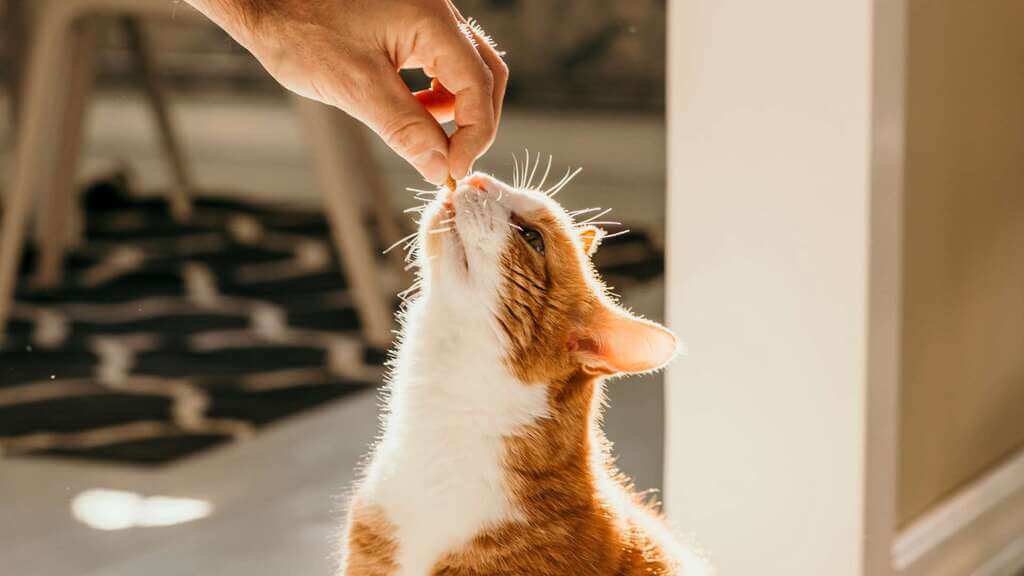
Proactive nutrition involves feeding your kitten a balanced diet from the start, while reactive nutrition addresses health problems as they arise. Proactively nourishing your kitten can lead to a healthier, longer life, reducing the risk of chronic diseases.
Tips for Avoiding Food Recalls
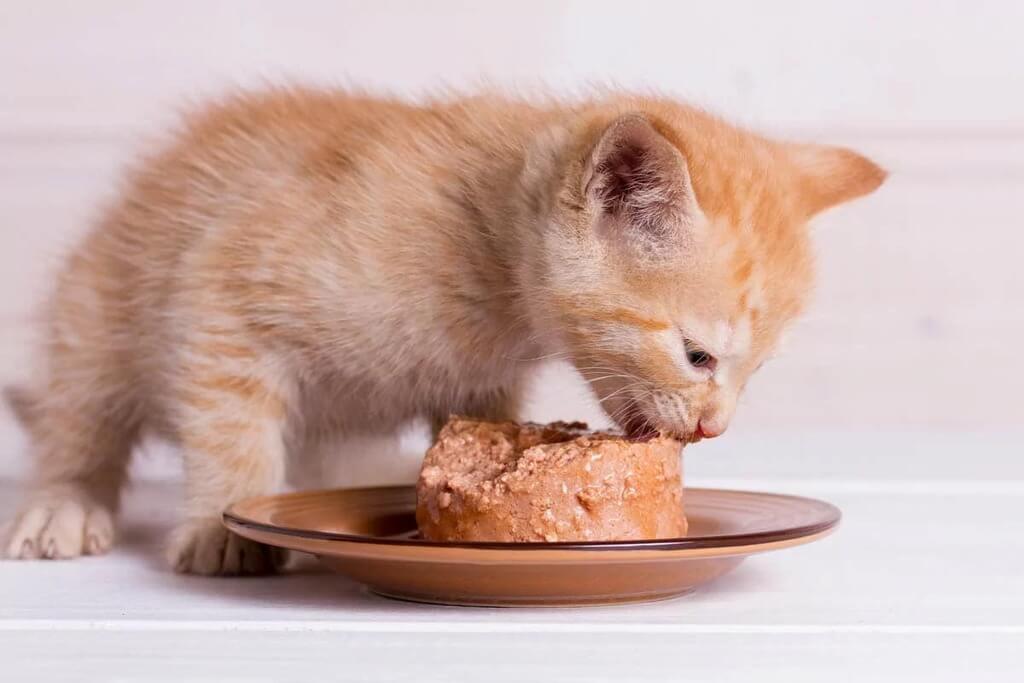
Staying informed about kitten food recalls is vital for your pet’s safety. Choose reputable brands and sources for your kitten’s food to minimize the risk of encountering recalled products. Regularly checking trusted pet food websites and subscribing to recall alerts can keep you updated.
Homemade vs. Store-Bought: Balancing the Diet
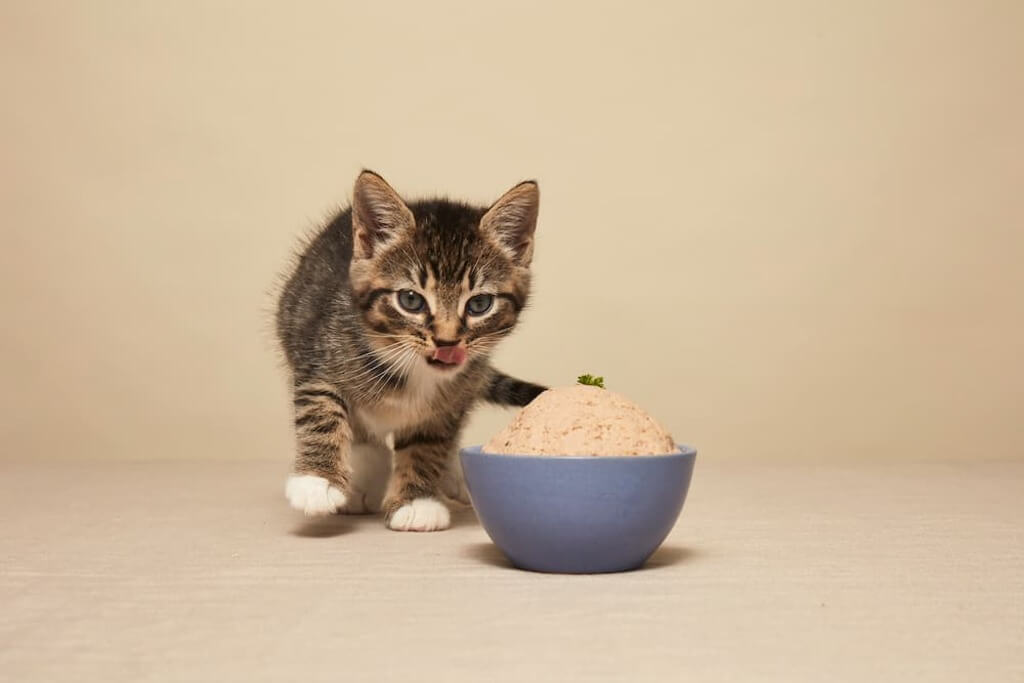
Homemade kitten diets offer control over ingredients but require knowledge to ensure nutritional balance. Store-bought foods are convenient and often nutritionally complete. Weighing the pros and cons of each option helps in making an informed decision for your kitten’s diet.
Supplements and Special Diets for Kittens
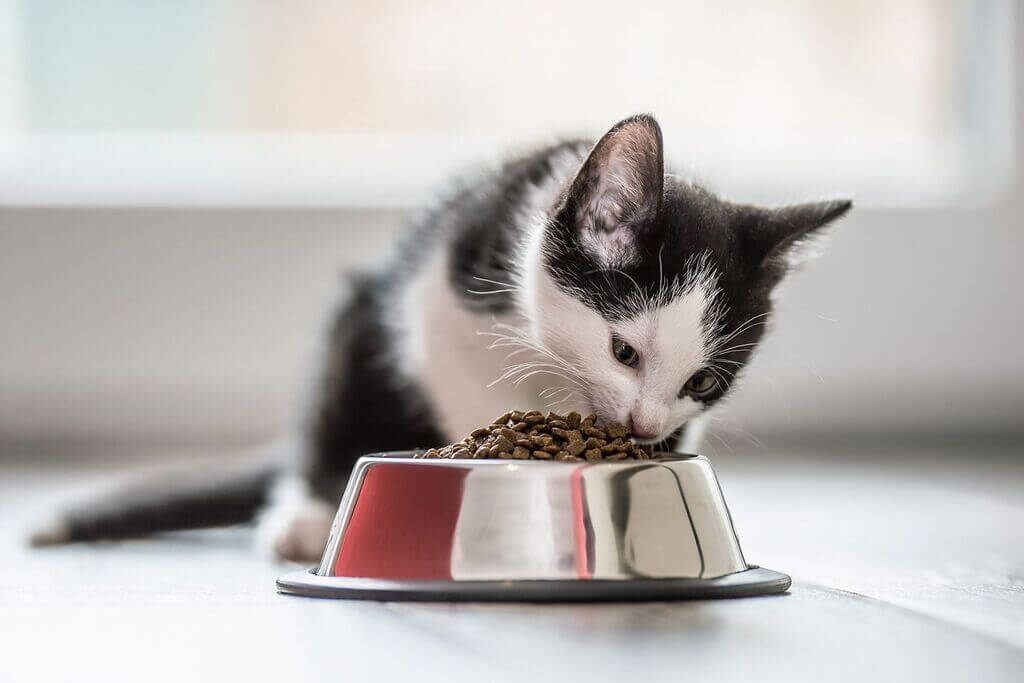
While a balanced diet typically provides all the necessary nutrients for a healthy kitten, there are situations where supplements and special diets become crucial. Understanding when and why these are needed can help you cater to your kitten’s specific health requirements.
When to Consider Supplements for Your Kitten
Dietary Gaps: If your kitten’s regular diet isn’t meeting all their nutritional needs, supplements might be necessary. This is often the case with homemade diets, which may lack certain nutrients.
Health Conditions: Kittens with specific health issues, such as digestive problems or weak immune systems, may benefit from targeted supplements like probiotics or antioxidants.
Growth Support: Supplements like omega-3 fatty acids can support brain and vision development, while calcium and phosphorus are essential for bone growth.
Choosing the Right Supplements
Veterinarian Recommendations: Always consult your veterinarian before adding any supplements to your kitten’s diet. They can recommend the right type and dosage based on your kitten’s health and nutritional needs.
High-Quality Brands: Choose supplements from reputable brands that have undergone third-party testing for quality and safety.
Appropriate Formulation for Kittens: Ensure that the supplement is formulated specifically for kittens, as their needs differ significantly from adult cats.
Managing Special Dietary Needs and Allergies
Identifying Allergies: If your kitten shows signs of allergies (like itching, digestive upset, or poor coat quality), consult your vet. They might recommend an elimination diet to pinpoint the allergen.
Prescription Diets: For kittens with medical conditions, such as urinary issues or kidney disease, vets often prescribe special diets that are formulated to manage these conditions.
Balanced Homemade Diets: If you opt for a homemade diet, consult a veterinary nutritionist to ensure it’s balanced and meets your kitten’s growth requirements.
Adjusting Diet Over Time
Regular Evaluations: As your kitten grows, their dietary needs will change. Regular check-ups with the vet can help adjust their diet accordingly.
Transitioning Foods: When changing diets (e.g., from kitten to adult food), do so gradually to avoid digestive upset.
Regular Vet Check-ups and Diet Adjustments
Regular veterinary check-ups play a pivotal role in maintaining your kitten’s health. Diet adjustments may be necessary as your kitten grows and their health needs change. Veterinarians can provide tailored advice for each life stage.
Explore Further:








